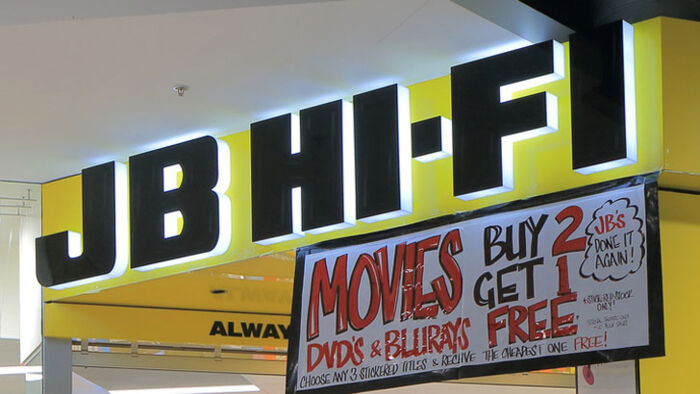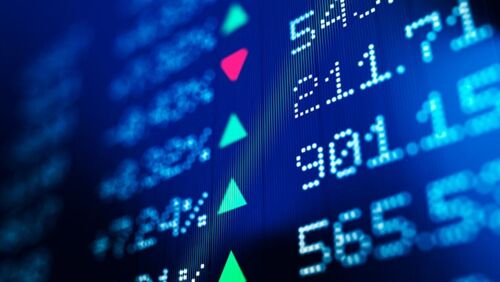Has JB Hi-Fi's luck run out, or is now the time to buy?
Despite the challenges of lockdowns, many retail businesses have actually prospered during the pandemic as consumers had limited options to spend with travel and entertainment greatly restricted, so instead they indulged themselves by buying stuff.
But now retailers appear to be facing a perfect storm.
On the demand side, not only has the services side of the economy opened up, but consumer confidence looks like it may decline. Interest rates are rising and likely to continue to for a while. Housing prices are declining and the bottom looks a way off. This is expected to crimp demand as consumers need to tighten their belts.
On the cost side, wages are rising due to low unemployment and award wage increases of 4.6%, plus 0.5% increase to superannuation, that came into effect in July. Rents are also rising as many are tied to CPI which was at 6.1% in the June quarter and likely to rise further.
As a consequence of these forces, most market analysts are forecasting tough times ahead for the major retail stocks with reduced sales and increased costs leading to significant reductions in profits over the next two years.
JB Hi-Fi (ASX:JBH) is now the second largest listed retailer in Australia outside the food sector, only surpassed by Wesfarmers. Revenue is $9.2 billion and market capitalisation is $4.5 billion.
The business has been well run for many years, with revenue having increased every year for the last 10 years at an average compound rate of 11.4% per annum. Not for the first time, analysts are predicting that its luck has run out and financial year 2023 will see sales revenue decline.
The market is forecasting sales to drop by 3% and earnings per share to drop by 22% in 2023 with subsequent smaller declines in 2024. These forecasts are not without good reason given the scenario described above.
Profits are particularly exposed as JB Hi-Fi trades on single digit net profit margins and even in the bumper year of 2022 only managed a margin of 8.4%. This means that small changes can make a big difference to the bottom line.
As outlined, sales are expected to fall, gross margins are expected to contract as discounting is re-introduced to maintain market share and the cost of doing business is expected to rise due to increases in the cost base. Small changes in these three factors can lead to large changes in the bottom line.
Of course, this is all based on forecasts of what the economy is predicted to do over the next 12 to 18 months.
Economic prediction is far from an exact science. Countering some of the negativity is record low unemployment, high savings rates, and pent-up demand from having been locked in our closets for two years. Things may not turn out to be as bad as predicted. Or they could be worse.
Rather than obsessing about upcoming economic data, a better approach is to look out five years ahead and consider the likely prospects of the business. Could they continue to grow revenue above 10% per annum?
Probably not, but a result half that good is still a good outcome. Given the strength of the business and its scale, if we do go through a tough period, it may be more resilient than its competitors and emerge with increased market share. It also has strong pricing power, so is more likely than some to be able to pass increased costs along to its customers.
JB Hi-Fi has managed its capital well. The balance sheet is strong with cash exceeding debt. It is also generating a return on equity of 42% with strong cash flow generation. In addition to increasing the dividend by 10% last year, it also returned $250 million to shareholders via an off-market buyback.
Retailing is a cyclical business, fluctuating with the fortunes of the economy, however the good retailers ride through those periods and then look to prosper when the honey is flowing.
After allowing for a 22% drop in earnings per share, JBH is trading on a forward PE ratio of 10.8. This compares with its long term average of 13.3. The forward dividend yield, again assuming a 22% drop in dividends, is 6.1% fully franked. These represent quite attractive valuation metrics on their own.
There could also be further upside, if the forecasts turn out to be overly pessimistic. Even if they are correct, in the longer term, if earnings revert back towards current levels and PE ratios return to their average levels then there is considerable upside for the share price.
Successful investing requires purchasing quality businesses for a good price. JB Hi-Fi meets the definition of a quality business. For those with the patience to look through the low point in the economic cycle, now may represent an opportunity to acquire the stock at a Black Friday-sized discount.
Get stories like this in our newsletters.



